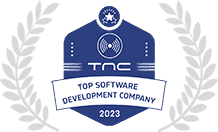NetSuite is a comprehensive cloud-based Enterprise Resource Planning (ERP) solution designed specifically to meet the unique needs of e-commerce businesses. With the digital marketplace becoming increasingly competitive, e-commerce companies must leverage technology to optimize their operations, manage their resources efficiently, and enhance customer experiences. NetSuite addresses these requirements by providing an all-in-one platform that integrates core business processes, including inventory management, order processing, customer relationship management (CRM), financial management, and more.
In an era where businesses are expected to deliver seamless and personalized experiences, NetSuite offers tools that enable e-commerce companies to automate repetitive tasks, gain real-time insights, and make informed decisions. By utilizing NetSuite, businesses can streamline their operations, reduce overhead costs, and ultimately enhance their growth trajectory.
The platform supports various e-commerce models, from B2B to B2C, and provides customizable features to cater to the specific needs of each business. As a result, companies can create tailored shopping experiences for their customers while efficiently managing their backend operations.
Key Features of NetSuite for E-Commerce
NetSuite’s robust feature set equips e-commerce businesses with the necessary tools to thrive in a competitive landscape. Some of the key features include:
1. Inventory Management
NetSuite’s inventory management capabilities allow businesses to monitor stock levels, track product performance, and automate replenishment processes. This functionality helps e-commerce companies maintain optimal inventory levels, reduce excess stock, and prevent stockouts, ensuring customers have access to products when they need them.
2. Order Management
With NetSuite, order management becomes a streamlined process. The system automates order processing from order capture to fulfillment, ensuring timely delivery and accurate tracking. Businesses can also manage returns and exchanges efficiently, enhancing customer satisfaction.
3. Customer Relationship Management (CRM)
NetSuite’s built-in CRM capabilities enable e-commerce businesses to manage customer relationships effectively. Companies can capture customer data, track interactions, and analyze buying patterns, allowing them to tailor marketing strategies and enhance customer loyalty.
4. Financial Management
NetSuite simplifies financial management with tools for accounting, budgeting, and financial reporting. The platform provides real-time visibility into financial performance, helping businesses make informed decisions based on accurate data.
5. Multi-Channel Selling
NetSuite supports multi-channel selling, allowing businesses to manage sales across various platforms, including their own website, marketplaces like Amazon, and social media. This capability enables companies to reach a broader audience and increase sales opportunities.
6. Customizable Dashboards and Reports
NetSuite offers customizable dashboards that provide key performance indicators (KPIs) and metrics at a glance. Businesses can generate tailored reports to gain insights into performance, customer behavior, and market trends, driving data-driven decision-making.
Benefits of Using NetSuite for E-Commerce
Implementing NetSuite for e-commerce operations provides numerous advantages that can significantly enhance growth and efficiency:
1. Improved Operational Efficiency
By automating key processes such as inventory management and order fulfillment, NetSuite reduces the time and effort required to manage daily operations. This efficiency allows businesses to allocate resources more effectively and focus on strategic initiatives.
2. Enhanced Customer Experience
NetSuite’s CRM tools empower businesses to understand customer preferences and behaviors better. By leveraging this data, companies can personalize marketing efforts, improve customer service, and create a more satisfying shopping experience, leading to higher customer retention rates.
3. Scalability
As e-commerce businesses grow, they often face challenges related to scalability. NetSuite’s cloud-based architecture allows companies to scale operations seamlessly without significant investments in infrastructure. Whether it’s expanding product lines or entering new markets, NetSuite can support growth.
4. Real-Time Insights
NetSuite’s real-time reporting and analytics capabilities provide businesses with immediate access to critical data. This visibility enables companies to identify trends, monitor performance, and make informed decisions quickly, ensuring they remain agile in a dynamic market.
5. Cost Savings
By integrating various business processes into a single platform, NetSuite reduces the need for multiple software solutions, minimizing overhead costs. Furthermore, improved inventory management and order fulfillment can lead to reduced operational expenses, contributing to overall cost savings.
6. Enhanced Collaboration
NetSuite fosters collaboration across departments by providing a unified platform where teams can access and share information. This collaboration improves communication, streamlines workflows, and enhances overall productivity.
How NetSuite Streamlines E-Commerce Operations
NetSuite’s integrated approach allows e-commerce businesses to streamline operations in several ways:
1. Automation of Repetitive Tasks
With automation, tasks such as inventory updates, order confirmations, and invoicing are handled efficiently, reducing manual errors and saving time. This automation frees employees to focus on more strategic tasks, such as customer engagement and business development.
2. Centralized Data Management
NetSuite serves as a central repository for all business data, including customer information, sales transactions, and financial records. This centralized approach ensures that all teams work with the same up-to-date information, improving accuracy and collaboration.
3. Seamless Integration with E-Commerce Platforms
NetSuite integrates seamlessly with popular e-commerce platforms, enabling businesses to manage their online stores directly from the ERP system. This integration allows for real-time updates on inventory, orders, and customer information, improving operational efficiency.
4. Streamlined Supply Chain Management
NetSuite provides tools for managing the entire supply chain, from procurement to delivery. Businesses can track shipments, manage vendor relationships, and optimize logistics, ensuring products reach customers quickly and efficiently.
5. Enhanced Analytics and Reporting
NetSuite’s reporting capabilities allow businesses to analyze performance across various metrics, such as sales, inventory turnover, and customer acquisition costs. By leveraging this data, companies can identify areas for improvement and make informed strategic decisions.
NetSuite vs. Traditional E-Commerce Solutions
When comparing NetSuite to traditional e-commerce solutions, several key differences stand out:
1. Comprehensive Integration
Traditional solutions often require multiple systems for different functions (e.g., CRM, inventory, accounting). In contrast, NetSuite integrates all these functionalities into one platform, reducing the complexity of managing multiple vendors.
2. Cloud-Based Flexibility
NetSuite’s cloud-based model allows for easy access to data from anywhere with an internet connection. Traditional solutions may require on-premises installations, leading to increased IT costs and maintenance challenges.
3. Real-Time Data Access
With NetSuite, businesses have real-time access to data and analytics, allowing for quick decision-making. Traditional systems may involve delays in data reporting and analysis, hindering responsiveness to market changes.
4. Scalability and Growth Potential
NetSuite is designed to scale with growing businesses, accommodating increased transaction volumes and new product lines. Traditional solutions may struggle to keep up with growth, leading to operational bottlenecks.
5. User-Friendly Interface
NetSuite offers a modern, intuitive interface that enhances user experience. Traditional solutions may have outdated designs and functionalities that hinder usability.
Implementing NetSuite in Your E-Commerce Business
1. Assess Your Business Needs
Before implementing NetSuite, businesses should assess their specific needs and goals. Identify pain points in current operations and determine how NetSuite can address these challenges.
2. Engage Stakeholders
Involve key stakeholders in the implementation process, including IT, finance, and sales teams. Their insights will be invaluable in tailoring the system to meet business requirements.
3. Plan the Implementation Process
Create a detailed implementation plan, including timelines, resources, and training requirements. A well-structured approach will ensure a smooth transition to NetSuite.
4. Training and Support
Provide adequate training for employees to familiarize them with the new system. Ongoing support will help address any issues and ensure a successful adoption of NetSuite.
5. Monitor and Optimize
After implementation, continuously monitor the system’s performance and gather feedback from users. Use this information to make necessary adjustments and optimize operations for better efficiency.
Case Studies: Success Stories with NetSuite for E-Commerce
1. Company A: Improving Inventory Management
Company A, a mid-sized e-commerce retailer, struggled with inventory management across multiple platforms. After implementing NetSuite, the company automated its inventory tracking and gained real-time insights into stock levels. As a result, they reduced stockouts by 30% and improved overall customer satisfaction.
2. Company B: Enhancing Customer Experience
Company B, a B2C e-commerce business, leveraged NetSuite’s CRM capabilities to better understand customer behavior. By personalizing marketing campaigns based on customer data, they increased customer engagement by 25% and saw a significant boost in repeat purchases.
3. Company C: Streamlining Order Fulfillment
Company C, an online fashion retailer, faced challenges in order processing and fulfillment. After adopting NetSuite, the company automated order management, resulting in faster fulfillment times and a 20% reduction in shipping errors. This efficiency led to enhanced customer trust and loyalty.
Future of E-Commerce with NetSuite
As e-commerce continues to evolve, NetSuite remains at the forefront of innovation. The platform is constantly updated with new features and improvements to adapt to changing market demands. Key trends shaping the future of e-commerce include:
1. Increased Focus on Personalization
With the rise of data analytics, businesses can offer personalized shopping experiences. NetSuite’s CRM tools will continue to play a vital role in helping companies understand customer preferences and tailor their offerings accordingly.
2. Emphasis on Omnichannel Strategies
As consumers engage with brands across various channels, e-commerce businesses will need to adopt omnichannel strategies. NetSuite’s multi-channel selling capabilities will enable companies to provide a seamless shopping experience, regardless of where customers interact with the brand.
3. Growth of Mobile Commerce
Mobile shopping is on the rise, and e-commerce businesses must adapt to this trend. NetSuite will continue to enhance mobile functionalities, enabling companies to cater to mobile users effectively.
4. Integration of AI and Automation
The integration of artificial intelligence and automation will revolutionize e-commerce operations. NetSuite is expected to incorporate advanced analytics and automation features to streamline processes further and enhance customer experiences.
Conclusion
NetSuite provides a powerful solution for e-commerce businesses looking to streamline operations and foster growth. By integrating essential functions and offering real-time insights, NetSuite empowers companies to make data-driven decisions, improve efficiency, and enhance customer experiences. As the e-commerce landscape continues to evolve, leveraging platforms like NetSuite will be critical for businesses aiming to stay competitive and thrive in a digital-first world.
FAQs
- What is NetSuite, and how does it benefit e-commerce businesses?
- NetSuite is a cloud-based ERP solution that integrates various business processes, enabling e-commerce businesses to streamline operations, improve efficiency, and enhance customer experiences.
- Can NetSuite handle multi-channel selling?
- Yes, NetSuite supports multi-channel selling, allowing businesses to manage sales across various platforms, including their own website, marketplaces, and social media.
- How does NetSuite improve inventory management?
- NetSuite provides real-time visibility into inventory levels, automates replenishment processes, and tracks product performance, helping businesses maintain optimal stock levels.
- Is NetSuite scalable for growing e-commerce businesses?
- Yes, NetSuite is designed to scale with growing businesses, accommodating increased transaction volumes and new product lines without significant infrastructure investments.
- What role does NetSuite play in enhancing customer experience?
- NetSuite’s CRM capabilities allow businesses to capture customer data, analyze buying patterns, and personalize marketing efforts, resulting in improved customer satisfaction and loyalty.
- How does NetSuite automate order management?
- NetSuite automates order processing from order capture to fulfillment, ensuring timely delivery and accurate tracking, thereby enhancing the overall customer experience.
- What are the costs associated with implementing NetSuite?
- Costs can vary based on the size of the business and the specific features required. It’s best to consult with NetSuite for a customized pricing plan.
- Can I integrate NetSuite with my existing e-commerce platform?
- Yes, NetSuite integrates seamlessly with popular e-commerce platforms, enabling real-time updates on inventory, orders, and customer information.
- What training is required for employees to use NetSuite?
- Adequate training is essential for employees to familiarize themselves with the system. NetSuite offers various resources, including tutorials and support, to facilitate this process.
- How does NetSuite help in financial management for e-commerce?
- NetSuite simplifies financial management with tools for accounting, budgeting, and reporting, providing real-time visibility into financial performance.
- What industries benefit most from NetSuite?
- While NetSuite serves various industries, e-commerce businesses, especially those operating in B2B and B2C models, significantly benefit from its comprehensive features.
- Does NetSuite offer customer support?
- Yes, NetSuite provides various support options, including online resources, training, and direct customer support, to assist users in resolving issues.
- How often does NetSuite update its features?
- NetSuite regularly releases updates to improve functionality and add new features, ensuring users have access to the latest technology and capabilities.
- Is NetSuite easy to use for non-technical users?
- Yes, NetSuite offers a user-friendly interface designed to be intuitive, making it accessible for users with varying levels of technical expertise.
- Can I customize reports in NetSuite?
- Yes, NetSuite allows users to customize reports and dashboards to track specific metrics and KPIs relevant to their business needs.
- What is the deployment process for NetSuite?
- The deployment process involves assessing business needs, engaging stakeholders, planning implementation, and providing training and support for users.
- How does NetSuite ensure data security?
- NetSuite employs robust security measures, including data encryption, regular backups, and access controls, to protect sensitive business information.
- Can NetSuite help with compliance and regulatory requirements?
- Yes, NetSuite provides tools to help businesses manage compliance with industry regulations and standards, ensuring they meet necessary requirements.
- What makes NetSuite different from other ERP solutions?
- NetSuite’s comprehensive integration of e-commerce functionalities, cloud-based flexibility, and real-time data access set it apart from traditional ERP solutions.
- How do I get started with NetSuite for my e-commerce business?
- To get started with NetSuite, assess your business needs, engage with a NetSuite representative for a demo, and create a detailed implementation plan tailored to your requirements.
- How to Optimize Inventory Management with NetSuite - October 4, 2024
- Best Practices for Customizing NetSuite to Meet Business Needs - October 4, 2024
- How to Successfully Migrate Your Business Data to NetSuite - October 4, 2024




















